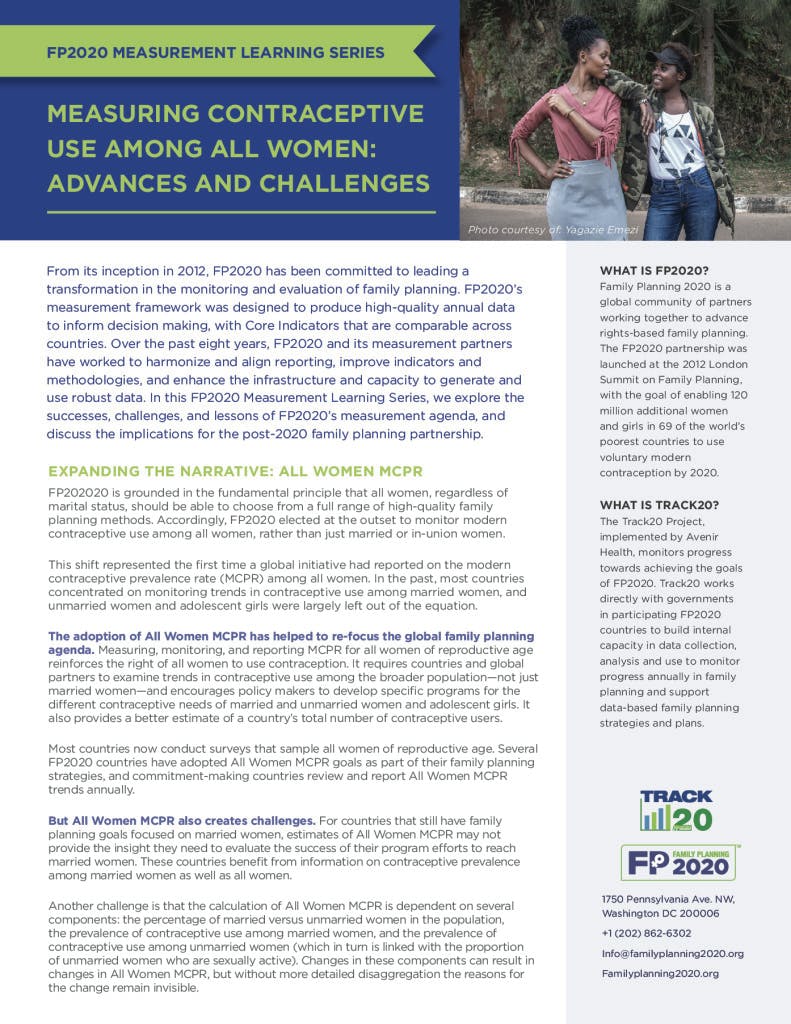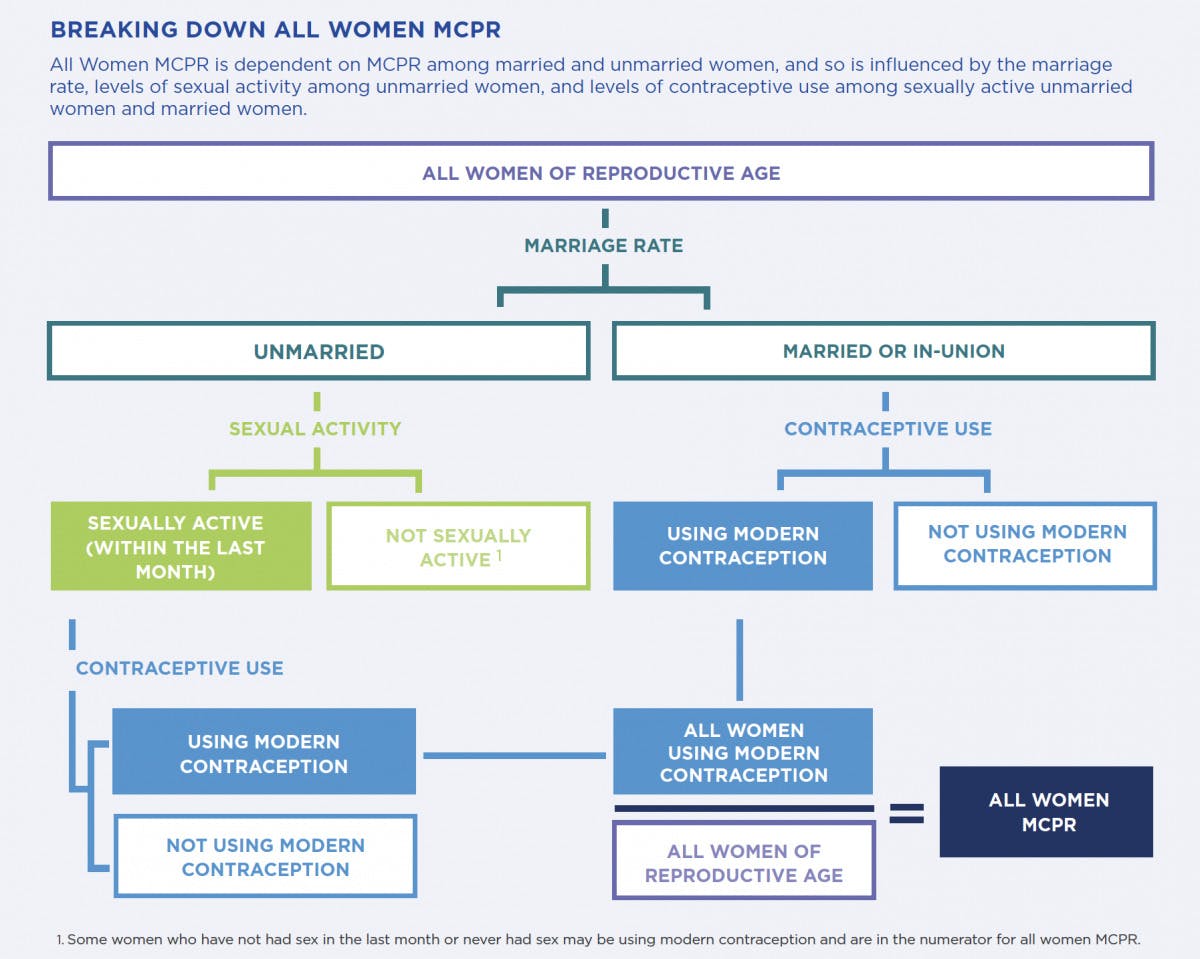
Measurement Learning Series
All Women
All Women MCPR is influenced by the marriage rate, levels of sexual activity among unmarried women, and levels of contraceptive use among sexually active unmarried women and married women.
Focus Area
The principle underlying FP2030 is that women, regardless of their marital status, should have access to a diverse range of high-quality family planning options.
As a result, FP2030 has chosen to track the usage of modern contraceptives among all women of reproductive age, not just those who are married or in a union. This approach has helped to refocus the global family planning conversation, and by measuring, monitoring, and reporting MCPR for all women, FP2030 is reinforcing the fundamental right of women to control their own reproductive health.
Interview with Emily Sonneveldt from Track20
The rationale for measuring contraceptive use among all women
FP2020 uses all women to reflect a rights-based approach to family planning, where all women, regardless of marital status, should have access to high-quality family planning services. Historically, both global and country strategies have set married or in-union women goals, which inherently deny the reality that unmarried women can be sexually active and in need of family planning services.
Further, in many cases now you have in-union women who are not cohabitating with their husbands, whether due to migration, work, or other reasons. These shifts mean that the assumption that married equals sexually active and unmarried equals not sexually active isn’t really relevant anymore. Going to an All Women mCPR allows you to look at all women who are in need regardless of marital status and make sure you have programs and strategies that are aimed at reaching each of these cohorts of women and girls so family planning services reach the people who need it.
The impact of the all women measure
While many countries do now have access to data on contraceptive use among All Women from the DHS and other surveys, All Women data is still not frequently used and is generally not part of the global discussion, and in many cases, country discussions.
By focusing on All Women data, FP2020 broadened that discussion – so we have more countries talking about contraceptive use among unmarried women, about the importance of ensuring that services reach these women and girls and that methods are available to them to use if they choose to use them. Reporting on All Women pushes countries to have these conversations in their own country context and acknowledge the broader need for family planning among women of all ages and marital status.
While hesitancy among countries to use All Women’s data as opposed to married women’s data is in part cultural, unfamiliarity with working with All women’s data also plays a part because with a larger denominator, the numbers are lower and it takes effort to understand and explain this shift to those using data for decision making.
As a result of FP2020’s focus on contraceptive use among All Women, important conversations are happening at the global and country levels that are more inclusive and better reflect the reality of the needs of women and girls.










